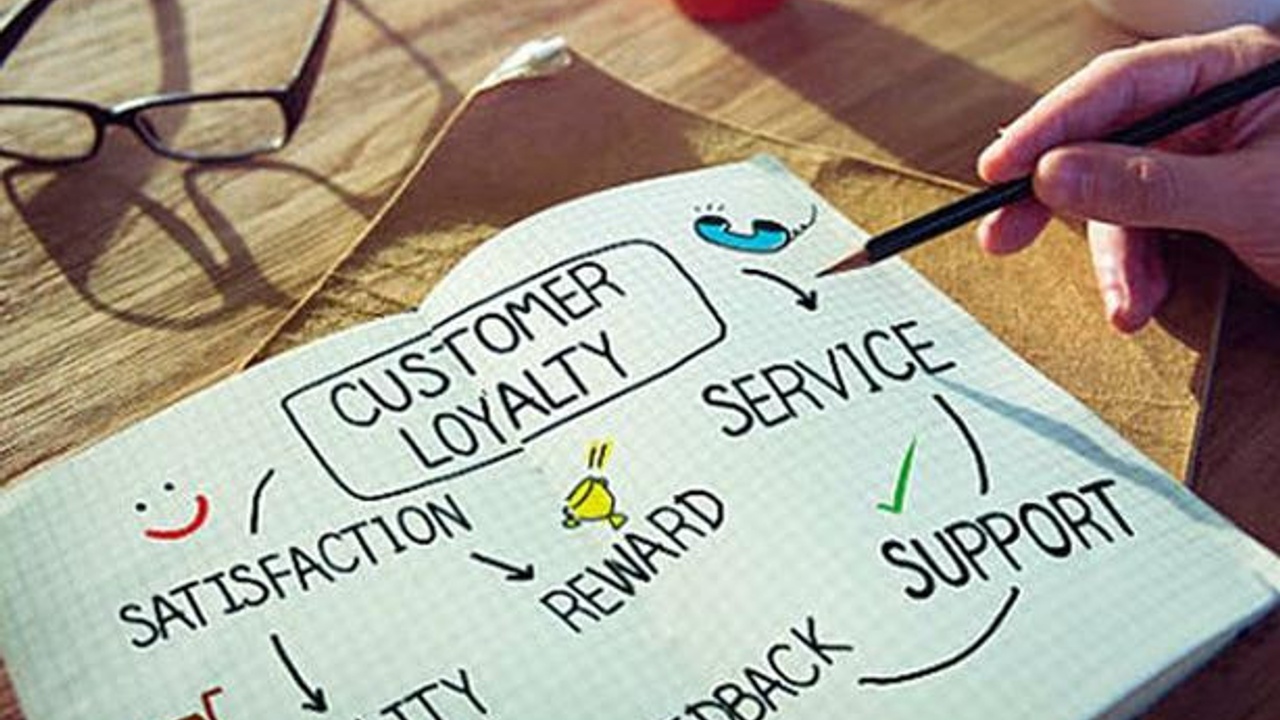Customer Loyalty
Nov 01, 2021
Successful service managers pay attention to the factors that drive profitability ie: investment in people, technology that supports frontline workers, revamped recruiting and training practices, and compensation linked to performance for employees at every level.
Most defecting customers give no advance warning until they're ready to move their business elsewhere. In fact, 90% of customers say that they're satisfied ... until a competitor makes a more appealing offer. It stands to reason that a happy employee is more likely to go the extra mile to service a customer. If your employees feel appreciated and empowered, they will probably be more pleasant to deal with and show a greater willingness to ensure every customer interaction is handled in accordance with the high standards you expect.
All other things being equal, the impression that a customer gets from your staff and you personally will make a difference in whether or not they do business with you again.
Taking time to work on basic customer loyalty concepts is good practice for business growth.
• Show a willingness and ability to listen to employees. Engage with them often; ask for feedback and suggestions on how to improve both the work environment and the customer experience. Make it safe for employees to talk about workplace dissatisfaction.
• Set clear expectations and hold employees accountable to a high standard of service. Reinforce to all employees how they contribute to satisfying customers, and thus generating profits.
• Recognise success, both on a company and individual employee level. When an employee does something extraordinary, use it as an opportunity to celebrate achievement.
• Understand factors that contribute to employee turnover. Uncover the root cause of employee frustrations so they can be quickly addressed.
• Provide ongoing coaching, training and education so employees have the tools to make decisions that are beneficial for the company and each individual customer.
• Use metrics to measure and track employee satisfaction and retention, including employee surveys and exit interviews.
• Finally, communicate effectively and keep your employees ‘in the loop’ when you implement any changes that stem from their feedback.
A company's service will be successful when the processes, leadership, communication, and learning and development are all aligned to support the service standards and the employees who deliver on them.
What about freight forwarding? How will an empowered employee deal with customer service and loyalty?
In the freight business, customers want a no-nonsense policy when dealing with their cargo. They want a few, yet important, things that you have to provide in order to win them over.
• Fast. Be quick to respond, be quick to reply, be quick quick - quick. They want quotations fast. They want the items shipped fast. Any delays, they want an explanation fast. If you can be faster than them, you win. Provide them information before they ask. Proactively tell them where the goods are currently located. The key word here is to be PROACTIVE.
• Precise. You need to provide accurate and to-the-point quotations. Never be too far off from the actual amount in the invoice you will charge to them. ALWAYS BE AS ACCURATE AS POSSIBLE. If you want to give a pre-quote to your customer, always refer to past figures. If you don’t have any, make sure you get the exact figures before quoting.
• Explanation. Explain clearly what he/she is paying for. List down in detail each charge he/she is required to pay. Then provide a total figure at the bottom.
• 24/7/365 Customer Service. Customers like to do shipping-related things at the last minute. Always be ready to answer questions, confirm the shipments, etc. Knowing how customers think is a very valuable resource.
• Reliability. Be reliable, if you say you will call them back in 5 minutes then you must call them back in 5 minutes even if it means advising them you need more time. Always suggest alternative cost-saving ways to keep their shipping expenses to a minimum.
Don’t sacrifice your earnings to make the customer happy. Instead, try to provide them with good advise and notice to ensure that their shipment arrive safely, on schedule, and inexpensively.
Loyalty leaders are successful because they have designed their entire business systems around customer loyalty--a self-reinforcing system in which the company delivers superior value consistently and reinvents cash flows to find and keep high-quality customers and employees.
The economic benefits of good customer loyalty are measurable. When a company consistently delivers superior value and wins customer loyalty, market share and revenues go up, and the cost of acquiring new customers goes down. The better economics mean the company can pay workers better, which sets off a whole chain of events. Increased pay boosts employee morale and commitment; as employees stay longer, their productivity goes up and training costs fall; employees' overall job satisfaction, combined with their experience, helps them serve customers better; and customers are then more inclined to stay loyal to the company.
Finally, as the best customers and employees become part of the loyalty-based system, competitors are left to survive with less desirable customers and less talented employees. To compete on loyalty, a company must understand the relationships between customer retention and the other parts of the business--and be able to quantify the linkages between loyalty and profits.
Staff and customer service are not a cost; staff is an asset you invest in.
Be smart! Keep your customers happy!
Would you like more information about your course?
Stay connected with news and updates!
Join our mailing list to receive the latest news and updates from our team.
We hate SPAM. We will never sell your information, for any reason.

